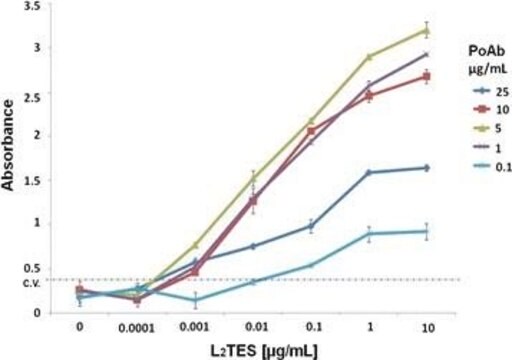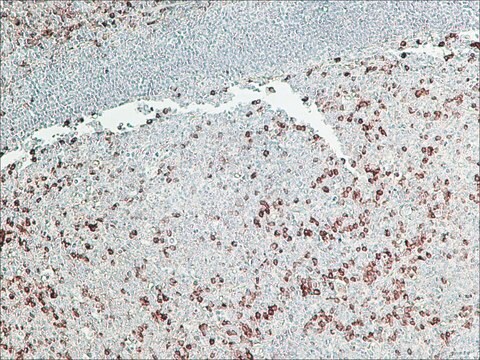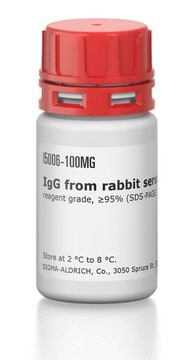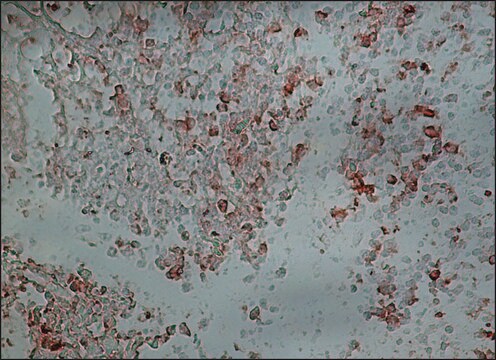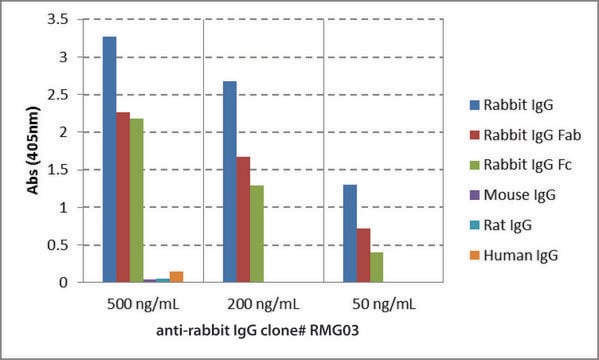R1008
Monoclonal Anti-Rabbit IgG (γ-chain specific) antibody produced in mouse
clone RG-96, ascites fluid
Sinónimos:
Monoclonal Anti-Rabbit IgG (γ-chain specific)
About This Item
Productos recomendados
biological source
mouse
Quality Level
conjugate
unconjugated
antibody form
ascites fluid
antibody product type
secondary antibodies
clone
RG-96, monoclonal
contains
15 mM sodium azide
species reactivity
rabbit
should not react with
goat, feline, pig, guinea pig, rat, bovine, canine, human, horse, sheep, chicken
technique(s)
dot blot: suitable
immunohistochemistry (formalin-fixed, paraffin-embedded sections): suitable
immunohistochemistry (frozen sections): suitable
indirect ELISA: 1:2,000
western blot: suitable
isotype
IgG1
shipped in
dry ice
storage temp.
−20°C
target post-translational modification
unmodified
¿Está buscando productos similares? Visita Guía de comparación de productos
General description
Specificity
Application
- enzyme linked immunosorbent assay (ELISA)
- dot blots
- immunohistology
- western blotting
- peptide mass fingerprinting (PMF)
Biochem/physiol Actions
Physical form
Storage and Stability
Disclaimer
¿No encuentra el producto adecuado?
Pruebe nuestro Herramienta de selección de productos.
Storage Class
10 - Combustible liquids
wgk_germany
nwg
flash_point_f
Not applicable
flash_point_c
Not applicable
Elija entre una de las versiones más recientes:
Certificados de análisis (COA)
¿No ve la versión correcta?
Si necesita una versión concreta, puede buscar un certificado específico por el número de lote.
¿Ya tiene este producto?
Encuentre la documentación para los productos que ha comprado recientemente en la Biblioteca de documentos.
Nuestro equipo de científicos tiene experiencia en todas las áreas de investigación: Ciencias de la vida, Ciencia de los materiales, Síntesis química, Cromatografía, Analítica y muchas otras.
Póngase en contacto con el Servicio técnico

